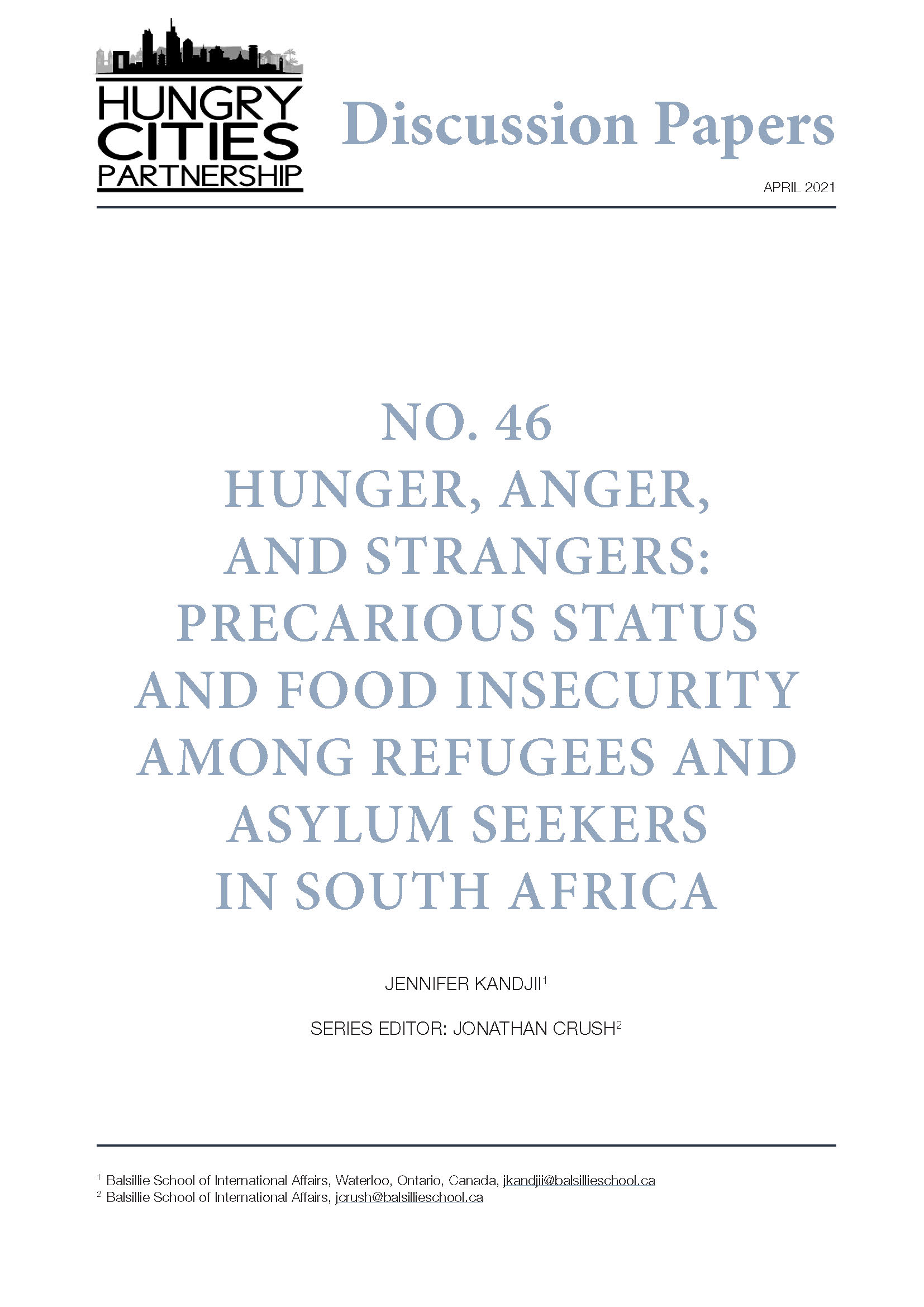This discussion paper analyzes the impact of a multiplicity of actors, policies, and practices on the food security of refugees and asylum seekers in South Africa’s urban spaces. Building on recent work that focuses on the legal production of illegality, institutionalization of precarity, and the reproduction of bordering practices by the state and citizenry, the paper reviews how South Africa’s migration governance processes coalesce with societal xenophobic tendencies to shape food security outcomes for forcibly-displaced populations. The discussion paper aims to fill a policy and research gap through understanding the experiences of displaced persons at the intersection of food security, migration governance, and everyday life.

